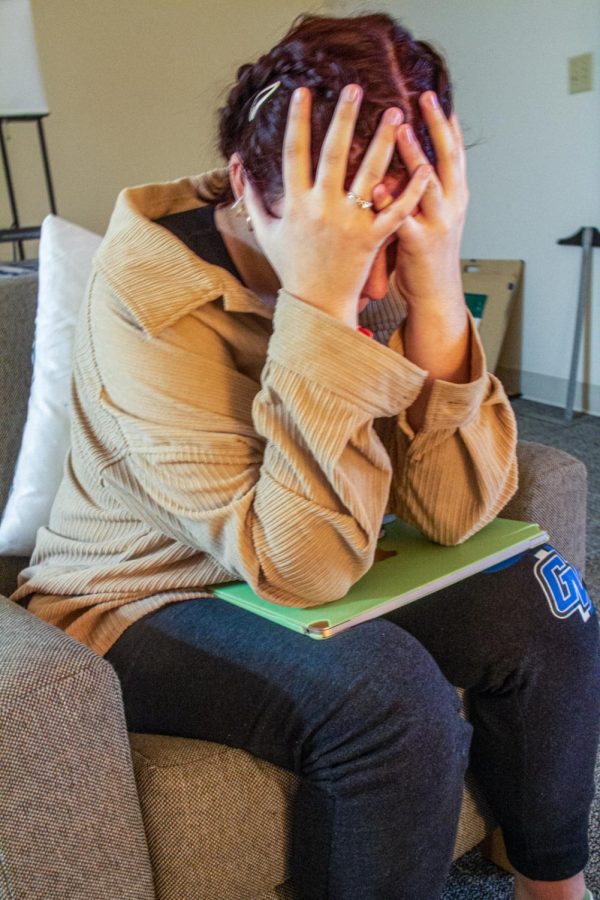GV counseling, recreation and wellness aim to help students combat effects of seasonal depression
Nov 7, 2022
On Nov. 6, Grand Valley State University community members found themselves resetting their clocks and grumbling about winter’s looming presence, despite last week’s abnormally mild weather. Although setting back the time is indicative of holidays and winter activities, it can also mean the beginning of the dark months for others.
Experts say that roughly 10% to 20% of people will find themselves being affected by Seasonal Affective Disorder (SAD), more commonly known as seasonal depression. It’s currently known in mental health fields that women are much more likely to suffer from SAD as well as people older than 20. Some of the many symptoms individuals may experience include feeling sad or down, hopelessness, tiredness, difficulty sleeping and difficulty concentrating.
Because of the lake effect, many GVSU winters can be harsh, especially for first-year students coming from places with milder winters. With grey and windy days for months on end, coupled with the additional stress of mid-year burnout, it’s important that students are prepared to manage their mental health in the coming months.
“If students know that seasons changing impacts them, make a plan,” said GVSU University Counseling Center (UCC) Psychologist Nick Debernardi. “With any transitions, what we’re going to recommend is ways to manage some of the symptoms that come along with seasonal affective disorder.”
One of the ways students can prioritize their mental health this winter is by utilizing options offered by GVSU’s Recreation and Wellness program. First, students have the option of receiving free wellness coaching. Although it is not designed to be a replacement for therapy, students are able to receive three months of goal-setting and strategizing with a certified wellness coach. This can prove to be a beneficial tool for initiating and sustaining healthy behaviors to manage one’s mental health.
Likewise, Debernardi said exercise can be a great tool for managing one’s mental health and potential associated symptoms.
“We like to take a holistic approach, so that means making sure we are doing some exercise, we’re checking with our eating and eating healthy and also what are we doing to cope,” Debernardi said.
GVSU’s Recreation and Wellness programs also offer ways to help students accomplish these goals. Allison Gehringer, Assistant Director of Recreation and Wellness, said these programs are designed in collaboration with the UCC to optimize student wellness.
“Research on exercise and depression shows that exercise boosts mood and helps ease symptoms of depression,” Gehringer said. “We are currently partnering with the UCC to offer students a free weekly class called Yoga for Stress and Burnout. We are also partnering with the UCC for their Comprehensive Anxiety Management Program, where they have invited us to lead a couple of sessions on the power of physical activity and yoga.”
An additional program from GVSU Recreation and Wellness is the Press Pause campaign, which promotes students taking breaks for self-care during the day.
Katie Jourdan, a fellow assistant director for Recreation and Wellness, said the program is designed to help students manage stress during the winter months.
“It’s a reminder to help students get enough rest, sleep, unplug from technology and get in self-care,” Jourdan said.
Likewise, Recreation and Wellness has also devised a Nap Map which labels the best places to unwind in between classes.
Those who feel they need help should reach out to the University Counseling Center or call 988.
























